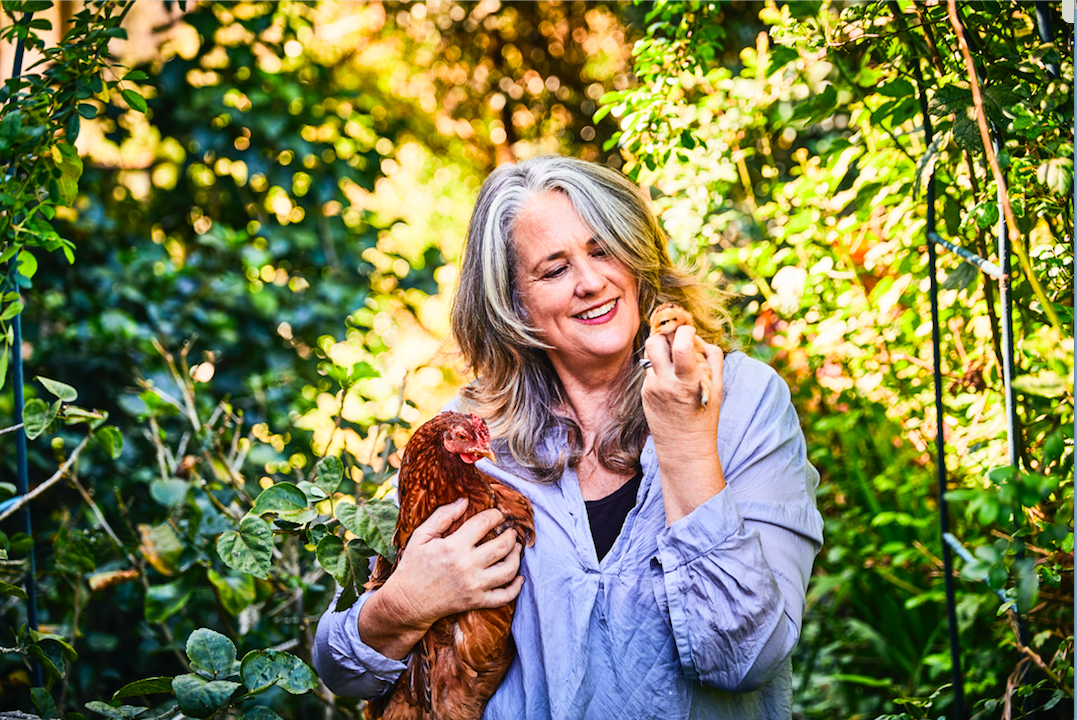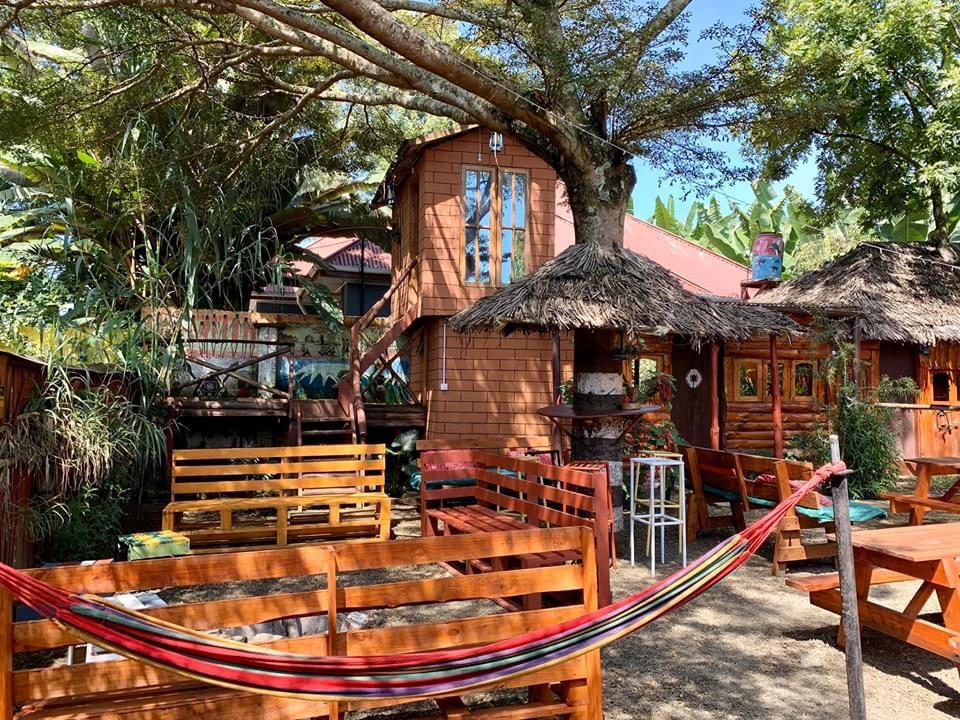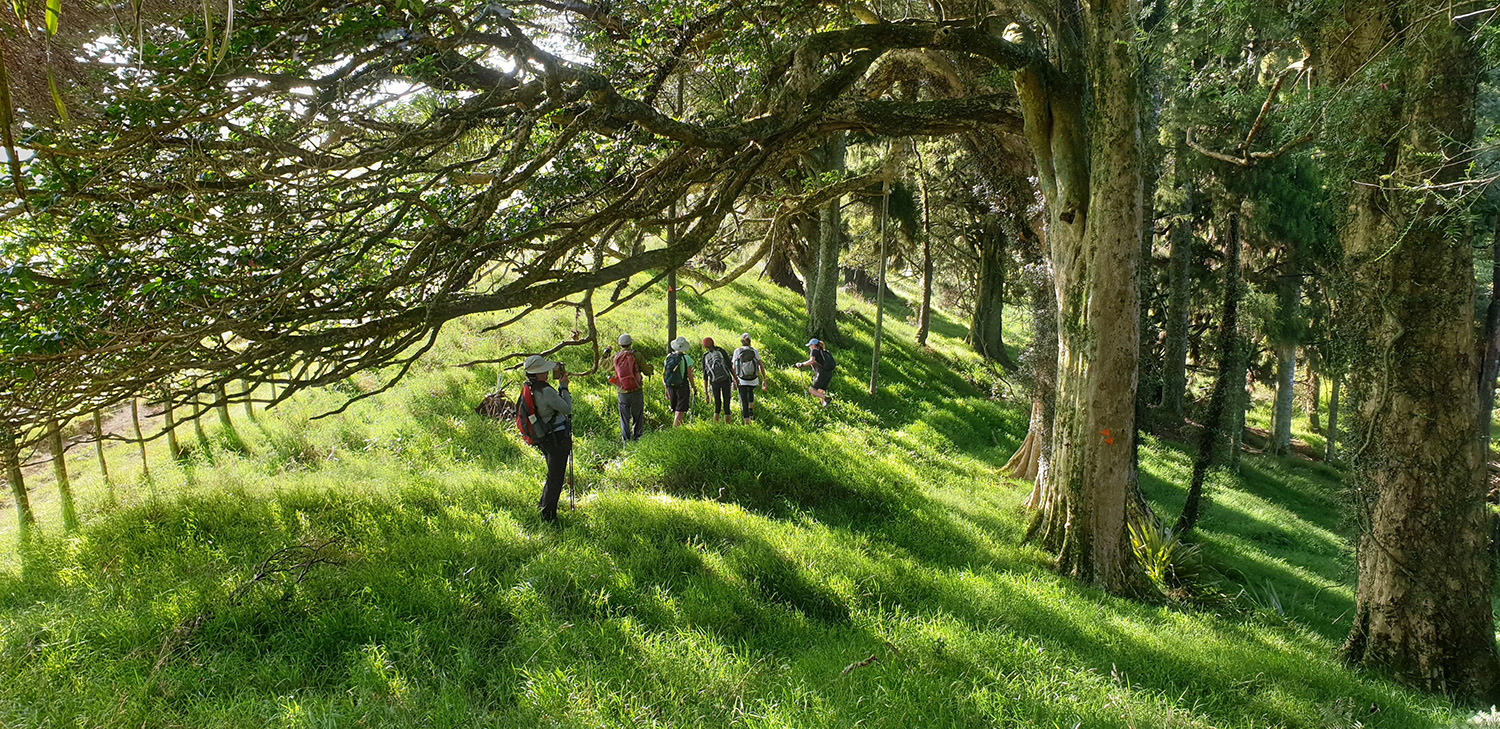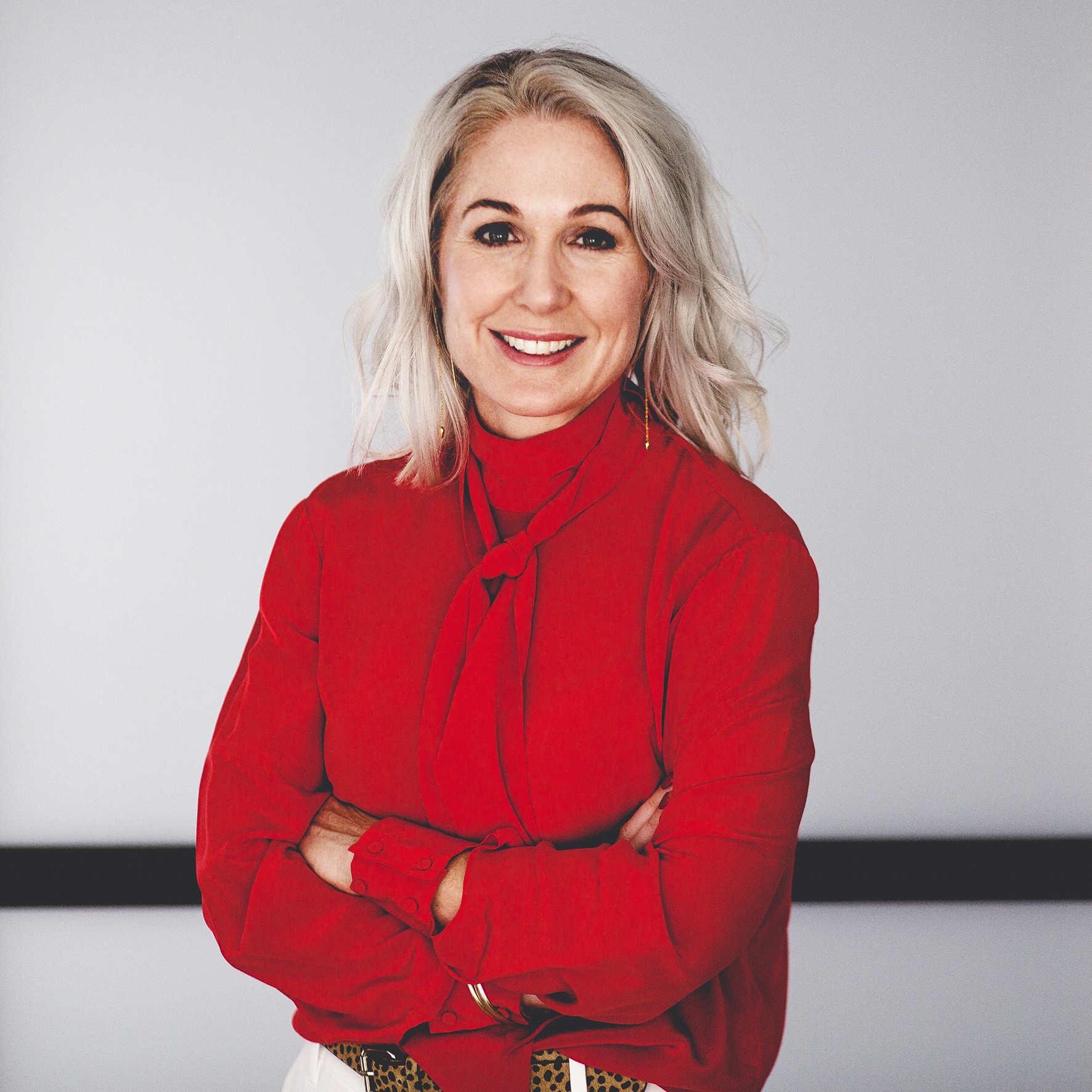Wendyl Nissen figures out the sustainable habits that are still realistic for her.
Every day I go on an egg hunt.
It involves a tour of our property, peering in behind bushes, in the woodpile, under buckets or in the middle of flax bushes for the eggs my hens have laid. Never, ever, do they use the very expensive hen house complete with nesting boxes I had built for them.
Recently I spotted one of my hens nestled under some kikuyu grass and made a mental note to go back later and see what eggs were there. When I went back she was still there which meant one thing. She was broody.
Some hens will see a nest of eggs and decide to sit on it for three weeks to produce chicks. About half my hens are broody old girls so this happens quite a lot.
I decided to remove the 18 eggs she was sitting on. They wouldn’t contain chicks because a couple of weeks ago we had dispatched our rooster so that our eggs would no longer be fertilised.
I grabbed an old icecream carton and gently took the eggs out from under her one by one, which is when I heard chirping – the kind of chirp little chicks make. So I stopped my egg raiding to look around for a hen with some chicks. This happened a lot in the rooster days. A hen would take her new chicks out for their first walk at a couple of days old and bring them to me to feed. I pick them and their mum up and put them in a big cage for safe keeping so that a wild cat or ferret doesn’t get them, and I feed the mother hen up with various treats, as they get pretty bedraggled after three weeks on a nest.
But there was no mother hen or chicks to be seen so I resumed my gathering while the broody hen mumbled and grumbled at me.
Then I realised that the chirping was coming from the ice cream carton. There were chicks inside those eggs.
Just before they hatch there is a little air bubble in the eggs and the chicks will chirp to let their mum know they are coming and all is well.

I realised that these eggs had been warmed by the broody hen for three weeks; it had been two weeks since our rooster left. That left a week for fertile eggs which is why we now had chicks about to hatch.
I spent a lovely day playing nursemaid and checking on my hen every few hours to see how many chicks had hatched. Eventually we had five new chicks on top of the last three who turned up a few weeks before that.
I’ve given up counting but my flock now numbers in the 20s when I had been aiming for a workable unit of 10.
I got my stool and put it by the cage of these new little chicks and sat there admiring them as I always do.
There really is nothing cuter than newly hatched chicks and this is one of my favourite activities in the world.
But then it wasn’t. Like so many things that I have brought into my life during my last 20 years as a greenie, I’m suddenly over it. Does this mean my life as a rural dweller steeped in all the good vibes of nature is over? I’m not sure.
Everyone has a moment when they decide to live a better life. Sometimes it is changing jobs, moving town or country, or stopping drinking.
My moment was nearly 20 years ago when I decided to walk away from my busy full-time career to work as a freelancer and become a greenie.
As I wrote in my first book about my new life, Domestic Goddess on a Budget, in 2009, my life change was down to two things.
The first was Nigella Lawson’s book How to be a Domestic Goddess which I read when I was a busy, stressed-out working mother trying to edit a magazine and survive in Sydney at the beginning of the new millennium. It was like gazing into a world as unfamiliar as fairies at the bottom of the garden, and it frustrated me. As I read Nigella’s soothing prose about ‘comfort cooking’ and ‘feeling good, wafting along in the warm, sweet-smelling air, unwinding, no longer being entirely an office creature’, a big part of me screamed: ‘Are you mad? Where would I find the time?’
But, years later, I realised that somewhere in me she planted a seed of desire. Not to wear pearl-buttoned cardies, but to find some time to nurture a little. To nurture myself, my children and my husband and to find some sort of definition for myself that wasn’t about an office, staff, performance appraisals and bonuses, but instead about creating a home. I developed a fantasy image which involved slow-cooked stews bubbling away on the stove, the constant scent of vanilla wafting through the house, an apron, a large kitchen table laden with home-grown produce, chooks clucking around an organic garden and a pair of green gumboots.

The second event was a malfunctioning air conditioning unit.
I had been working at a television production company for a couple of years, and every summer we sweltered and moaned, and every summer the boss would appoint someone senior to deal with it, and every summer men in overalls would come in and look around. The boss would get the bill… and we would continue to swelter. So, one day I sat in that hot, stuffy office wondering what part of me thought this was a great idea when I had a huge old villa with windows that opened to let the fresh air drift through. I resigned to work from home and so began my journey into the territory of the domestic goddess.
I went on to write seven books about this life and brand myself as the “Green Goddess” with a start-up company selling homemade green cleaning products we produced in the basement of our home. Then 10 years ago I moved out of Auckland onto a five-acre property by the water in the Hokianga.
In those days my green self was seen as a bit of a hippy, an extremist, a weirdo by just about everyone I knew. The way I was living belonged back in the 70s and should stay there along with the cults and incense.
But then things started to happen. Good magazine is celebrating its 15th birthday this issue and I was so glad to see it on the supermarket shelves as something which supported the lifestyle I was leading and writing about. Finally, there was something which personified the life I was leading. I was no longer a hippy weirdo! Thank you, Good.
But these days I’m also a bit more realistic about my life goals as I enjoy my 60s. There are some things I no longer do because they just annoy me.
Gardening is on that list. It’s taken me 20 years to realise that I’m a good planter, not a good gardener. I have spent thousands of hours and dollars buying plants and planting them. Most of them don’t survive because I don’t do the gardening bit, which is checking on them regularly, feeding them, nourishing compost and weeding around them.
I also can’t grow anything from seed – even though I’ve done a proper online two-hour course on raising plants from seed.
I do manage to have a salad garden most of the time. I went to get some salad for dinner the other night and found that the whole bed had been consumed by snails and slugs overnight. I garden organically so no slug pellets for me. All that was left were some vague-looking stalks of something.
I no longer roast coffee beans, sprinkle baking soda in my carpets, clean windows with vinegar, knit my own dishcloths, make my own yoghurt, make my own wine (awful), make fly paper to hang in my kitchen – strips of dead flies is just revolting – grow tomatoes and bottle them, make my own deodorant, face cream, body oil and sunscreen, make my own furniture polish or whip up a batch of liquid laundry wash.
In the 20 years since I started this life all of these things have become available without harmful chemicals and many of them organic, so I just buy them and feel grateful to the people who go to the trouble of making them for me at a price which is affordable.
There are some things I still do.
I buy organics because no matter which way you slice it, organics is better for you. I am lucky enough to be able to afford them but these days there are many more organic products out there and a lot cheaper than they used to be.

I also know that buying organic supports the producers who go to the trouble and expense of producing them for me.
I am obsessed with compost and know that this is now a lifelong obsession. Making good compost is an endeavour that brings me so much satisfaction and is quite easy to do for someone who is a planter not a gardener.
I am still really finickity about chemicals in everything. I don’t buy candles with fragrance in them, I don’t use laundry powders which reek of artificial fragrance, I don’t use air fresheners or fly spray in my home, I always wash new clothes before wearing them. I can still be very judgy about chemicals and have to stop myself lecturing people who use those plug-in chemical spreaders known as air fresheners.
And I still make bread most days.
If there was one thing I’m grateful for in the past 20 years it is learning how to make bread. To me it is the most simple, nurturing thing you can do for yourself and your family.
But the hens and the best organic eggs I have ever tasted? Part of me wants to spend the time I use up caring for them and hunting down their eggs, inside and reading a good book. But then I know that time outside and communing with the hens and nature brings me joy and always will.
Top tips for keeping chickens from someone who is over it.
- Always have three or more. Hens are happiest in a flock and three is the minimum number. They are very hierarchical so there always has to be a top hen and a bottom hen. If you only have one or two they will feel put out and weird.
- By all means give them a hen house but don’t expect them to use it. In nature hens sleep in trees so that is what they will do at your place.
- If you want really good eggs, feed them really good feed. My feed contains seeds and legumes grown in New Zealand and not imported and treated with chemicals or radiation at the border.
- You will never have enough eggs. Hens don’t lay every day and sometimes they don’t lay at all during the winter or if they’re moulting or broody or just don’t feel like it.
- If you find a nest of eggs, you can test if they are okay to eat by putting them in a bowl of water. The ones that float are no good.
- If you want tame hens, you need to get them young and tame them every day to feed out of your hand and then jump on your lap – or your head as one of my hens liked to do. Once tame they enjoy cuddles and are wonderful pets.
- Some hens in your flock will get sick and die. You have done nothing wrong. Some of them seem to succumb to a virus which weakens them, then you see them sleeping a lot, then you find them dead.
- Only get a rooster if you live in the country, can sleep through crowing at all hours of the night – especially on a full moon – and want baby chickens.
- Do not clip their wings. They need their wings to fly into the tree at night but also to get up high quickly if they are being pursued by a rabid dog or cat. I’ve never seen a chicken actually fly away.
- Breeds don’t matter. Go for a wild’sh breed if you want really healthy hens. Most people in the country have hens fathered by some rooster that showed up or was dumped, in our case. They turn out to be really healthy and rugged unlike the red shavers which are mass produced for egg production.







